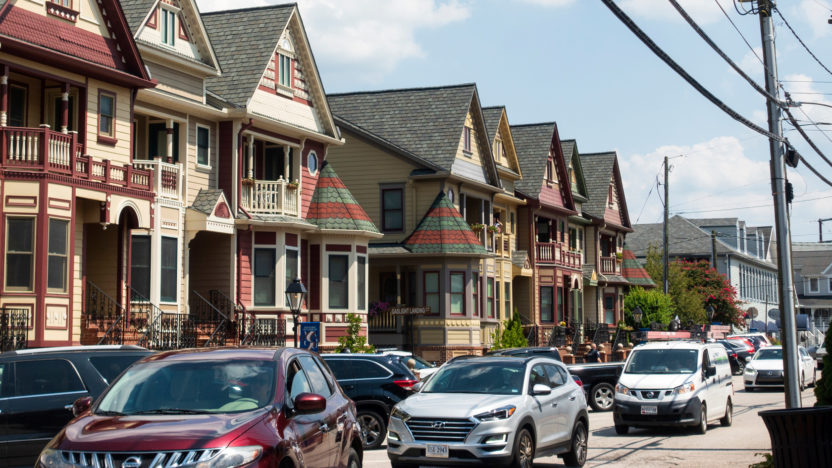Unless you live in a big city, living on a busy street is often considered highly undesirable. And even if you do find yourself in New York or Los Angeles, owning on a major thoroughfare can have its drawbacks.
And while many of those drawback are valid (does anyone really want blaring horns at 3 a.m.?), they don’t have to be deal breakers. Believe it or not, there are some silver linings to living on a busy street.
Yes, you should take some extra consideration before buying on a road that sees a lot of traffic. But have you also considered the advantages? We asked our experts to highlight the pros, as well as the cons, of buying a home on a busy street.
Pro: Easy access to transportation and attractions Living on a busy street can have its perks, especially for commuters. Busy streets often provide easy access to mass transit and local attractions that would take longer to get to when living farther away from a busy or main street. “An advantage of a busy road is it might be closer to freeway access or even buses and trains,” says Ryan Lundquist, certified residential appraiser, who runs Sacramento Appraisal Blog.
Con: Noise. A well-trafficked street will bring a lot of beeps and vrooms that can get really old really quickly. “The glaring disadvantage of a busy road is the noise, because that’s not going to go away,” says Lundquist. “Of course people do get used to it—for some it can end up being like white noise. But if the sound of cars and people is going to gnaw at your soul or sense of peace, then don’t buy a house on a main road.”
If you do fall in love with a property that’s on or near a busy road, experts recommend visiting at different times of the day to get a realistic feel for the noise situation.
Pro: Closer to businesses and shopping centers Don’t want to have to travel far for a gallon of milk? Busy streets tend to house grocery stores, restaurants, and shopping options. You may also be closer to fire and police stations, which could be critical in an emergency. “Living on a busy road usually means you’re closer in proximity to stores and conveniences—maybe even within walking distance,” says Lundquist.
Con: Unsafe for children. Safety is a big priority for home buyers, particularly those with kids. Busy roads can bring all kinds of hazards, especially speeding cars. Parents will feel less safe letting their children play outside with cars whizzing by.
Pro: Price discount. Buying a home on a busy street is likely not the first choice for most buyers. And that can be a good thing. “A home on a busy street might be priced lower, which makes it easier to buy in that market,” says Lundquist. Therefore, if you have your heart set on living in a particular neighborhood but are priced out of the more quaint parts of town, check out homes closer to main thoroughfares.
“It can be as much as a 20% difference compared to a similar house on a quiet street,” says Mark Ferguson, a licensed real estate agent, investor, and founder of InvestFourMore.
Con: Resale value. Finding a buyer may be more difficult if you do decide to sell in the future. Ferguson says he has plenty of experience with that: “We have bought numerous investment properties on busy roads and have had bad experiences with almost all of them,” he says. “We account for the lower price but still are often surprised by how little demand there is.” Adds Lundquist, “It’s important for sellers on a busy road to not underestimate the reality that an adverse location can stand out like a sore thumb—even when inventory is low.”

